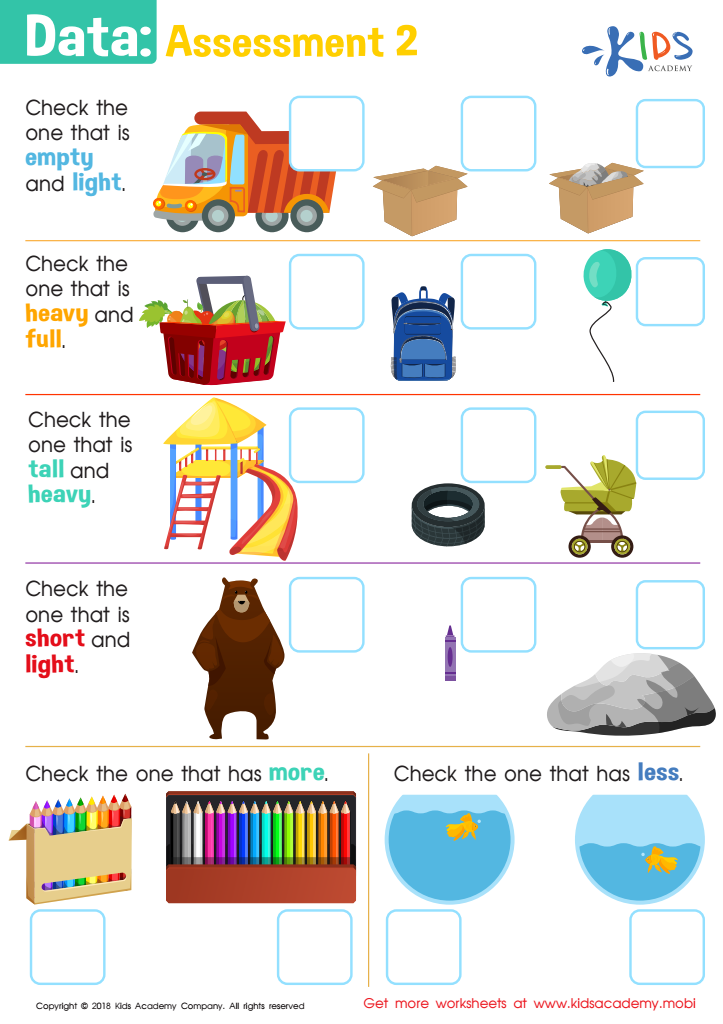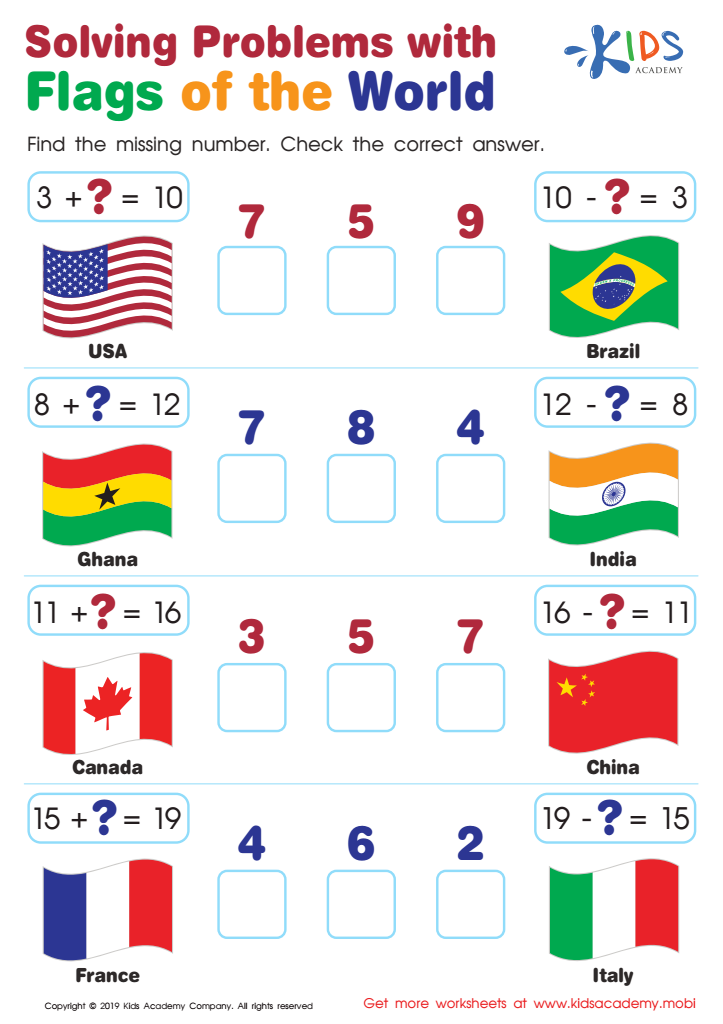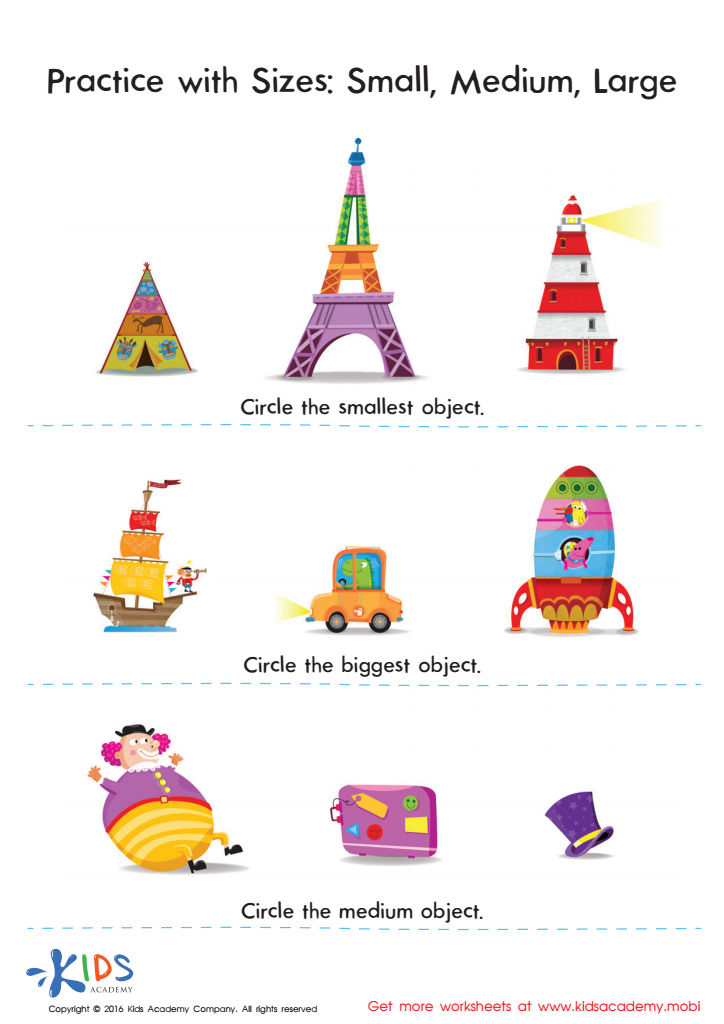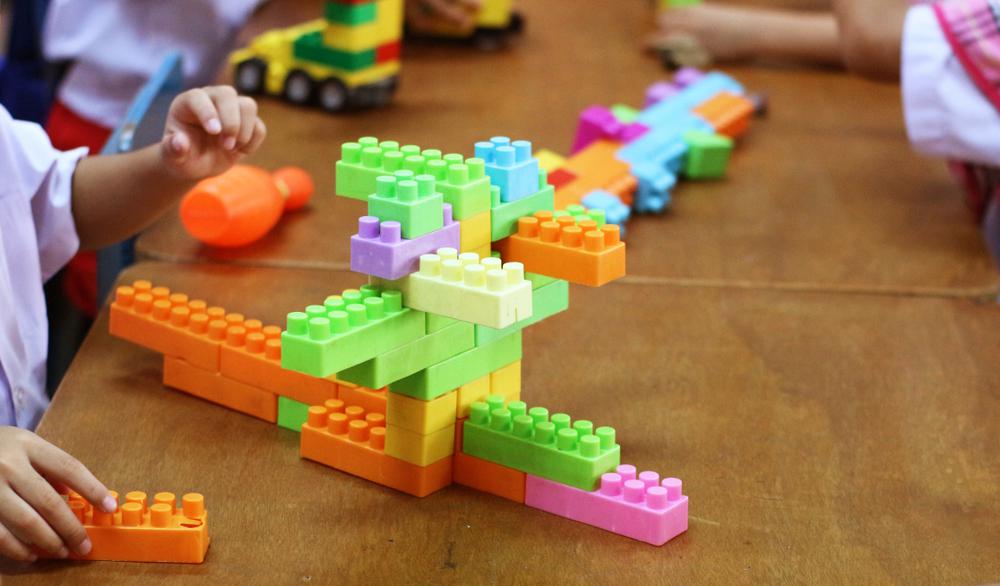Comparative analysis Worksheets for 6-Year-Olds
4 filtered results
-
From - To
Unlock your child's potential with our engaging Comparative Analysis Worksheets designed specifically for 6-year-olds. These educational resources help young learners understand comparisons by exploring similarities and differences across various subjects, including animals, objects, and more. By utilizing fun visuals and interactive activities, children can enhance their critical thinking and analytical skills. Our thoughtfully crafted worksheets promote cognitive development while keeping learning enjoyable. Perfect for classrooms or at-home learning environments, these worksheets provide an effective way to foster analytical abilities in a playful manner. Encourage your child to discover and learn with the power of comparative analysis today!


Data: Assessment 2 Worksheet


Solving Problems with Flags of the World Worksheet
Comparative analysis is an essential cognitive skill that enables 6-year-olds to make connections and distinctions between different concepts, objects, or situations. At this age, children are naturally curious and begin to observe the world around them. By engaging them in comparative analysis, parents and teachers can help nurture critical thinking, enhance decision-making skills, and foster problem-solving abilities.
When children learn to compare and contrast, they develop the ability to identify similarities and differences. This skill is crucial not just academically, but also in everyday life. For example, when comparing two animals, children must consider their habitats, diets, and behaviors, reinforcing their understanding of biology and fostering a sense of environmental awareness.
Moreover, comparative analysis can encourage language development. Describing differences and similarities helps children expand their vocabulary and improves their communication skills. Engaging in discussions about comparisons promotes collaborative learning and social interaction, encouraging children to articulate their thoughts clearly.
Finally, making comparisons boosts confidence in their thinking processes. When kids learn to evaluate options, whether it's in choosing a book or deciding on a game, they become empowered decision-makers. Thus, fostering comparative analysis among 6-year-olds enriches their learning experiences and promotes holistic development.
 Assign to My Students
Assign to My Students























